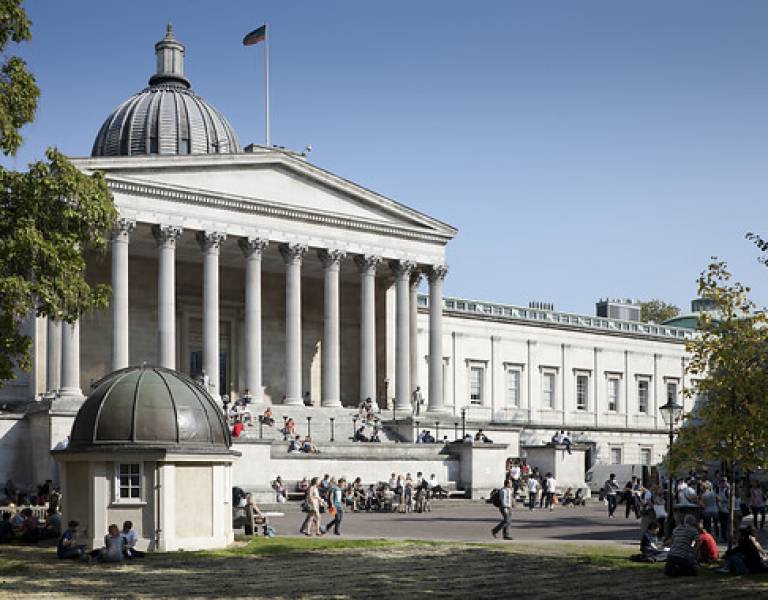Chemical Sustainability Research Theme Seminar
09 March 2022, 1:00 pm–2:00 pm

Learning the rules (or guidelines) for tunable molecular materials
Event Information
Open to
- UCL staff | UCL students
Availability
- Yes
Organiser
-
Helen Hailes
Location
-
Virtual20 Gordon StLondonWC1H 0AJ
Molecular materials and supramolecular systems have great potential in separation and sensing applications, but their synthesis and scale-up is challenging because their formation and self-assembly is strongly influenced by reaction environment. This talk will focus on three approaches to control the formation of 3D molecular species and their assembly into molecular materials: 1) tuning the building blocks; 2) varying the interaction strength between building blocks, and 3) controlling the process by which they are made.
I will illustrate these three approaches with our work on low-symmetry porous organic cages (POCs),1 supramolecular nanotubes formed via chiral recognition of POCs,2 and the use of flow synthesis for cages3 and a macrocyclic molecular hinge,4 exploiting the enhanced control and wider process windows of working in flow. How things are made is just as important as what they are made from: by combining these three approaches I will set out our strategy for the tunable formation of molecular materials.
References:
- V. Abet† and F. T. Szczypiński†et al., ACIE, 2020, 59, 38, 16755-16763.
- A. Slater et al., Nat. Chem., 2017, 9, 17-25.
- M. E. Briggs† and A. G. Slater†et al., Chem. Commun., 2015, 51, 17390-17393
- C. D. Jones et al., J. Am. Chem. Soc. 2021, 143, 19, 7553–7565
† denotes joint first authorship.
About the Speaker
Anna Slater
at Department of Chemistry and Materials Innovation Factory, University of Liverpool
Anna Slater received her PhD in supramolecular chemistry from the University of Nottingham in 2011. Following postdoctoral positions in porphyrin self-assembly (University of Nottingham) and porous organic cage materials (University of Liverpool) she took up a Royal Society-EPSRC Dorothy Hodgkin Fellowship in 2016 and a Royal Society University Research Fellowship in 2021. Anna developed an interest in flow chemistry during her PDRA positions, recognising that flow technology has a lot to offer the supramolecular chemist; exploiting flow processes for enhanced control of chemistry is now a central theme of her work. Her research interests include molecular materials, enabling technology and organic synthesis and self-assembly. Her research group is based between the Department of Chemistry and the Materials Innovation Factory at the University of Liverpool.
 Close
Close

